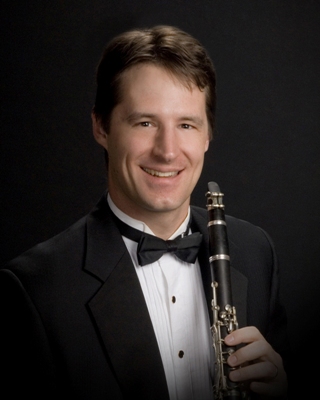As a way to recognize his academic and professional achievements in the fields of music and education, as well as his demonstrated leadership potential, the United States Department of State and the J. William Fulbright Foreign Scholarship Board have given Stoffan an opportunity to explore his passion more deeply, as well as to share American traditions in music with the people of the Czech Republic.
Having been named a Fulbright Scholar for the 2012-13 academic year, Stoffan will serve as an artist-in-residence at the Janacek Academy of Music in the city of Brno. While there, he will teach lessons to students in the clarinet studios, lead master classes, coach ensembles and present a recital of music by American composers.
"The majority of my teaching will be individual lessons rather than in a classroom setting, so what I'm looking forward to most is communicating my musical ideas with students whose first language is Czech. It's hard enough in English." Stoffan explained.
"I will probably need to teach more through playing, singing and movement, and talk less, or at least think about the words I use. I anticipate that I will re-examine my own teaching as a result. For instance, my students here will probably appreciate the part about talking less."
Explaining that Czech Republic music faculty are active performers just as faculty here in the states are, Stoffan added, "I look forward to performing with some of them. I think I will learn much about the repertoire and performance traditions through this collaboration."
Stoffan is one of approximately 1,100 U.S. faculty and professionals who will travel abroad through the Fulbright U.S. Scholar Program this year. The flagship international educational exchange program sponsored by the U.S. government, it is designed to increase the mutual understanding between the people of the United States and the people of more than 155 countries worldwide.
Regarding the news that he'd been named a Fulbright Scholar, Stoffan said it took time to truly sink in. "I didn't believe it myself for a couple of days," he explained. "I am truly honored and grateful to have this opportunity. I hope to be a good musical and cultural ambassador."
Since its establishment in 1946 under legislation introduced by the late U.S. Senator J. William Fulbright of Arkansas, the Fulbright Program has given approximately 300,000 students, scholars, teachers, artists and scientists the opportunity to study, teach and conduct research, exchange ideas and contribute to finding solutions to shared international concerns. Forty-three Fulbright alumni from 11 countries have been awarded the Nobel Prize, and 75 alumni have received Pulitzer Prizes.
For further information about the Fulbright Program or the U.S. Department of State's Bureau of Educational and Cultural Affairs, visit
fulbright.state.gov or contact James A. Lawrence in the Office of Academic Exchange Programs at (202) 632-3241 or e-mail to
fulbright@state.gov.

